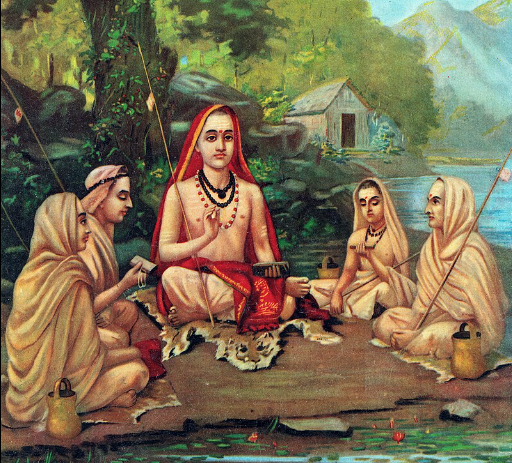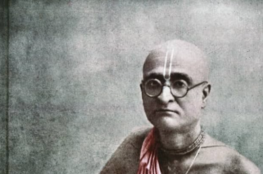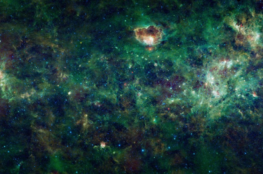Bhagavad Gita 13.14:
“Paramatma is omniscient and omnipresent, His faces and eyes are seeing everything. His ears hear everything. His reaching hands and feet go everywhere. He is all-pervading and all-powerful. That divine, infinite Being resides within the heart of every jiva-soul.”
सर्वत: पाणिपादं तत्सर्वतोऽक्षिशिरोमुखम् ।
सर्वत:श्रुतिमल्लोके सर्वमावृत्य तिष्ठति ॥ १४ ॥
sarvatah pani-padam tat sarvato ’ksi-siro-mukham
sarvatah srutimal loke sarvam avrtya tisthati [14]
In the previous verse of the Gita, Lord Krishna discusses the jiva-soul, saying the individual jiva is a conscious “knower” or kshetra-jnana, and moreover that the jiva is Brahman. Now, coming to this verse, Sri Krishna speaks about Paramatma, the all-pervading Lord whose hands and eyes and feet are everywhere.
In his commentary to this verse of Bhagavad Gita we find Shankaracharya begins by saying:
1) the jiva is Brahman
2) Brahman is formless and infinite
Shankara continues by saying the statement that the Lord has hands and feet going everywhere is simply metaphorical. If Brahman is formless, then statements about hands and feet are simply metaphors conveying the idea that the Lord has the power to reach out and touch things anywhere, according to Shankara. Moreover, Shankara says that since the jiva was described as “Brahman” in the previous verse, in this verse 13.14 Lord Krishna is saying the jiva is non-different from the Soul of the Universe, the Absolute Brahman, God.
Refuting this, Sri Baladev Vidyabhusan writes:
One should not say that verses 14-18 refer to the jiva-atma; the jiva is the topic of discussion in the verse before that. These verses can only be about the Supreme Lord. “His hands and feet go everywhere…” – this can only ever refer to the Lord, never the jiva.
Even in their liberated state the jiva-souls do not have the power to create a universe, according to Vedanta Sutra 4.4.17. The mystic powers of a liberated siddha are inferior to the powers of the Lord.




